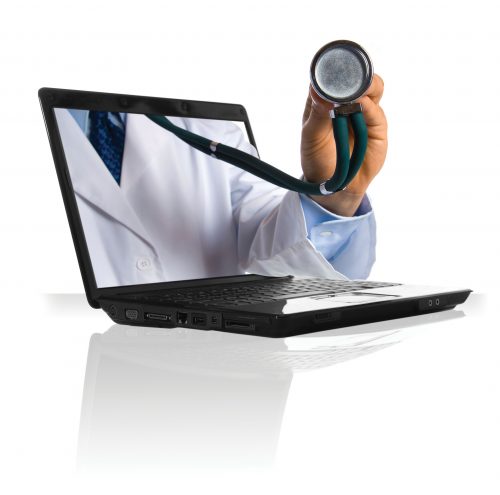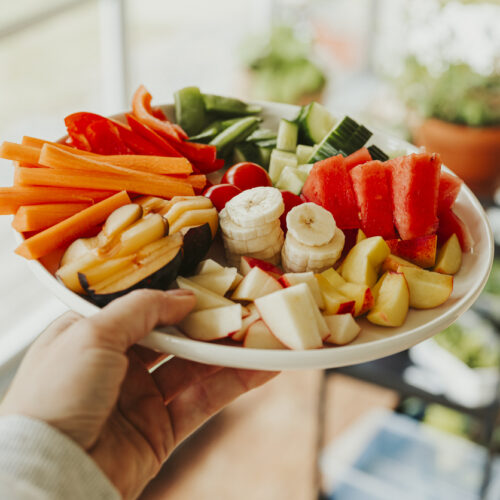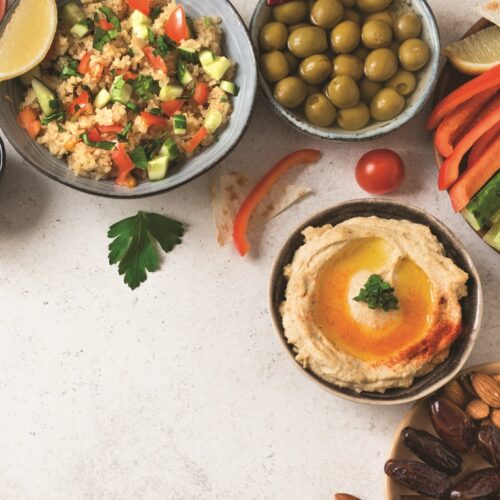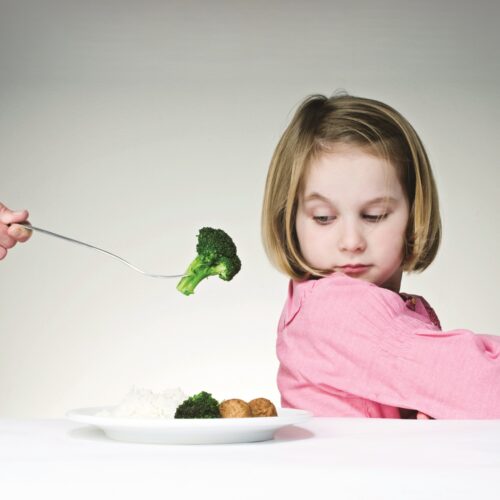
Do we always need to see a professional when there’s ‘Doctor Google’ in the house? HFG senior nutritionist Rose Carr investigates.
Recently I was stung by a wasp. ‘Dr Google’ was fast, cheap and good. He explained what to do and what to look out for. I didn’t expect to go into anaphylaxis but it was nice to know those around me would know what was happening if I did. When I later went to the pharmacy for antihistamine cream the advice was similar but more specific. I was told that taking an antihistamine tablet would be more effective and work faster than a cream.
The internet gave me some good information, and if that’s all there was available to me, no harm would have been done. However, it was reassuring and helpful to talk to someone face to face, even for such a minor health problem. But what happens when the stakes are higher? Are we taking unnecessary risks with our health and relying on information from the internet more than we should?
The upside of doing our own research
A 2007 UK study found that information from the internet can be useful and additional information to advice from professionals. Your research can help you have an informed discussion with a health professional and could help you come up with a list of questions to ask, making the most of your time with them.
Information you find on the internet can also confirm or expand on information given by a health professional. This is especially useful where the consultation might be time-limited or when the amount of information discussed is hard to take in all at once. In this case you could even ask for reliable websites to be recommended so you can do further reading and take more time to fully understand the information.
If you’ve done your own research, do discuss it with your health professional. They won’t feel threatened by you being interested and informed and they will want to answer any questions it raises for you. And if you have found information that’s different from what they are telling you and you are not sure what to think, don’t hide it: you’ll find it’s worth talking about.
If you have been appropriately diagnosed with a condition, internet forums where you can discuss your issues with others in the same boat can be extremely helpful. This may be especially so for anyone with a rare condition: just being able to communicate with someone who understands is positive. It may even be the way to find an expert clinician in the field.
“I found the internet a lifesaver for information and support when my daughter was diagnosed with a life threatening health condition – biliary atresia – at six weeks old,” says Auckland mother Samantha Sutherland. “It is not a common condition in New Zealand so when I needed to find people to talk to, I got on the internet and have literally found a ‘family’ with other parents online who are part of a ‘liver families’ forum.My daughter went on to have a liver transplant and a whole host of other complications and this network was there to answer questions and offer moral support and understanding.
“We were told by our doctors not to look online too much as there was too much scary information and this was pretty true, until I found the forum which offered personal support as well as research. Talking to other families was much more useful as they provide ‘on the ground info’ about day-to-day life with this kind of condition and how you get through it.”
The downside of doing our own research
Cyberspace is not regulated and not everyone out there is unbiased. At Healthy Food Guide we see many websites that inappropriately cite research to support a product being marketed on the website. It can be hard to know which sites are genuinely factual and which are cherry-picking research to suit their sales goals. And even the most well-intentioned people can give us completely erroneous information.
For medical professionals, it is worrying that some people may not know to question the advice or conclusions they read online. From a nutritional perspective, this can lead to drastic diets or eliminating foods or groups of foods without good reason.
Claire Turnbull, HFG nutritionist and director of the private practice Mission Nutrition, says in her clinic they see people every day who have decided to eliminate gluten or wheat in the hope it is the answer to everything from bloating and tiredness, to not being able to lose weight. In fact, many of the people they see aren’t actually following a gluten or wheat-free diet when they think they are, and they often don’t understand the difference between the two.
“When it comes to bloating and tiredness, there are so many other things that can be part of the problem such as FODMAPs, iron deficiency and poor quality sleep, as well as other more serious health issues that may not get picked up if you self-diagnose,” says Turnbull.
“When it comes to weight, let’s be very clear: independently wheat or gluten cannot make you fat. People may get some results from eliminating these foods and they will lose weight, but this is likely to be as a result of following a restrictive diet.”
Putting yourself on an elimination diet without having received credible advice first can pose other problems.
“A gluten- or wheat-free diet is not necessarily healthier”, says Turnbull. “It can mean that you have an inadequate fibre intake and a low intake of some vitamins and minerals if you haven’t substituted foods correctly, so even if it was appropriate for you to be following this type of diet, good planning and advice is needed.”
General practitioner Dr Phyllida Cotton Barker believes the internet has huge potential to provide really good information – as long as we can identify which sites are legitimate and can be trusted. Generally, she says, people are not self-diagnosing for serious health problems or doing things that will harm them in the short-term. Deciding to eliminate dairy without substituting other foods, for example, will lead to osteoporosis in the long-term, but hopefully before that happens you might realise that dairy wasn’t your problem (because it hasn’t gone away), or over time you get some better advice on your diet.
The strategy she believes can be useful is to stick with the problem you have, rather than trying to give yourself a specific label or diagnosis. You might find useful suggestions of things you can try that won’t do you any harm. If they don’t work, you haven’t lost anything apart from time. But if you don’t feel well, it’s often quicker and simpler to get the support of a professional.
Useful websites
These listed websites are useful investigative tools but they fully understand their limitations. Here’s how WebMD puts it: “Never disregard professional medical advice or delay in seeking it because of something you have read on the WebMD Site!” In other words, they can provide information but they cannot diagnose what a set of symptoms means for you.
www.everybody.co.nz
www.familydoctor.co.nz
www.mayoclinic.com
www.webmd.com
How to find credible health information in cyberspace
Anyone can publish anything on the internet, so it’s up to us to evaluate what we’re reading. Ask yourself these questions.
Who
Who is behind the site? Is it a commercial enterprise, a personal home page, an independent body, a government body or an academic institution? Check for an ‘About us’ section. Reputable websites will clearly state the qualifications or experience of the authors so you can evaluate their expertise on particular subjects. They may also provide information about the review or editorial process.
Why
Websites cost money to manage and keep up-to-date, so think about why the information is being provided. Is it to sell something? Is the information biased? Can I verify the information from other reputable sources?
When
Over time, medical advice can change so any reputable website providing health information will specify the date when that information was prepared or last reviewed. As a rule of thumb, if the health information is more than two years old, look for something more up-to-date to either verify or supersede what you’ve found.
Reader case studies
Self-help can help
“I have had tummy problems – bloating, diarrhoea, constipation, pain – on and off for years. Over the years, I’ve seen doctors about it and had all sorts of diagnostic tests – colonoscopy, colonography, blood tests for coeliac disease, pelvic ultrasounds – you name it.
In the end, the diagnosis (because there wasn’t anything else wrong) was IBS. But in terms of what to do about that, my GP had no advice. She couldn’t tell me if I should avoid any foods or do anything else that might help. The only thing she suggested was antidepressants – which weren’t for me.
After looking online I came across an article on IBS and FODMAPs – new research about certain foods that can aggravate IBS symptoms for some people. From a bit of further investigation, I had enough information to try cutting out some of the ‘main culprit’ foods. The results were so encouraging, I decided to find a local nutritionist who had expertise in this area and she put me through a proper FODMAPs elimination diet.
The change has been incredible! I felt better within weeks, and now that I have been through the process and know which foods to avoid and how to compensate for them in my diet, I feel really empowered. If I hadn’t done that bit of online research, I’d still be suffering.”
Jane
Feeling better in traumatic situations
“I was only 27 when I had a heart attack. I found the internet very useful to find experiences from other people the same age because it seemed like the pamphlets were written for people a lot older than myself! And as well as that, the medication I was on was what mostly old people would be on so the symptoms for me, leading a young and healthy active lifestyle, could be very different.
“The doctors’ advice was useful but my treatment was from the hospital mostly, and you can’t call on those doctors very often unless something is seriously wrong. So I used the internet to help me understand whether something was seriously wrong or a natural part of the recovery.
“I also researched online about possible side-effects and how people coped with them. I have an ICD pacemaker implanted now, and there is a support group for people sharing experiences.
“Rather than feeling like the only person in the world who has had that experience, I can now talk to a community of people who have been through the same thing. At least, this means I have someonewho I can talk to who truly understands how I feel. At most, I can find a solution for the problem from someone who has been through the same thing.”
Claire
Never assume
“We were on holiday and my husband’s big toe became red and inflamed quite soon after we left home. Gout, we thought, poor thing: he’d had it before. I watched in sympathy as he spent days hobbling around. It really was quite painful but he assured me he knew what he had to do and he became more careful with his diet. No more red wine and seafood for him!
“When we returned home he decided to take himself off to the doctor. Oops — it hadn’t been gout at all. After putting up with the worsening pain for over a week, the doctor informed him he had an infection in his toe. A course of antibiotics solved the problem pronto. Just a pity he had to suffer all that pain before getting it sorted!”
Bronwyn
If in doubt, phone Healthline
If you’re not sure whether to seek medical help or not, we recommend you phone Healthline. This is a trustworthy alternative to the internet, brought to you by the Ministry of Health. It’s a free telephone health information service staffed by registered nurses. The advice may range from ‘self-care’ through to ‘see your GP within 24 hours’ to ‘we’re ordering an ambulance for you now’.
Healthline is available 24 hours a day to callers throughout New Zealand. Phone 0800 611 116.
www.healthyfood.com










